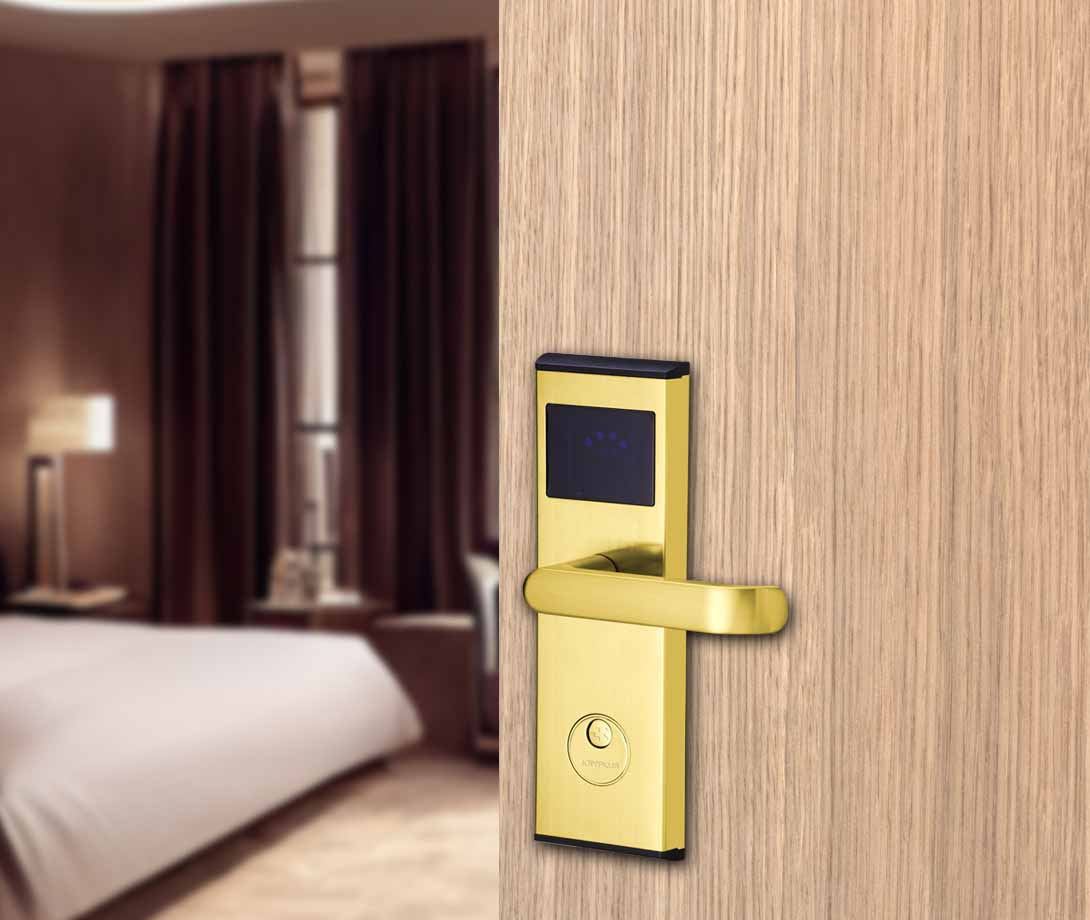How Do Electronic Hotel Locks Work?
When you check into a modern hotel, you might notice something different about your room key—instead of a traditional metal key, you’re handed a keycard, a smartphone app, or even a code to enter your room. These electronic hotel locks provide enhanced security, convenience, and flexibility compared to old-fashioned locks. But how exactly do they work? In this guide, we’ll break down the technology behind electronic hotel locks, explaining everything from keycard systems to Bluetooth-enabled smart locks in a way that’s easy for Americans to understand.
1. The Basics: How Electronic Hotel Locks Replace Traditional Keys
Gone are the days when hotels relied on metal keys that could be easily lost, duplicated, or stolen. Today, most hotels use electronic access systems, which fall into three main categories:
- Magnetic Stripe Keycards (Common in older systems)
- RFID Keycards (More secure, tap-to-unlock)
- Mobile & Biometric Access (Smartphone apps, fingerprint scanners)
These locks don’t require physical keys—instead, they use encrypted signals to verify access. When you check in, the front desk encodes your keycard or mobile app with a unique digital signature that matches your room. The lock’s internal reader checks this data and only grants entry if the credentials are valid.
One major advantage for hotels is remote management. If a guest loses a keycard, staff can instantly deactivate it and issue a new one, eliminating the need to rekey the entire lock. This system also allows hotels to set time-based access, automatically disabling keys after checkout.
2. Inside the Lock: The Technology That Keeps Your Room Secure
Electronic hotel locks may seem simple from the outside, but inside, they rely on advanced security mechanisms:
A. Magnetic Stripe vs. RFID Keycards
- Magnetic stripe cards (like old credit cards) store data on a black strip. When swiped, the lock reads the code and checks it against the hotel’s database.
- RFID cards (radio-frequency identification) use wireless signals—just tap the card near the reader, and it transmits an encrypted signal. These are harder to clone than magstripes.
B. Smartphone & Bluetooth Locks
Many modern hotels now let guests unlock doors via smartphone apps (like Hilton’s Digital Key or Marriott’s Mobile Key). These systems use:
- Bluetooth Low Energy (BLE) – Your phone communicates with the lock when nearby.
- NFC (Near Field Communication) – Similar to Apple Pay, tap your phone to unlock.
- QR Codes – Some budget hotels provide scannable codes instead of physical keys.
C. Battery & Backup Systems
Since electronic locks run on batteries, hotels ensure they don’t fail at the wrong time. Most have:
- Long-life lithium batteries (lasting 1-2 years)
- Emergency power options (like a 9V battery contact for low-power situations)
- Manual override keys (hidden mechanical locks for emergencies)
3. Why Hotels Love Electronic Locks: Security & Convenience Benefits
Hotels didn’t switch to electronic locks just for the cool factor—these systems offer real advantages for both guests and management:
A. Enhanced Security
- No more lock picking – Traditional keys can be bumped or picked, but electronic locks require digital authentication.
- Instant key deactivation – Lost a card? The front desk can block it immediately, unlike metal keys that require a full lock change.
- Audit Trails – Hotels can track who entered a room and when, useful for security investigations.
B. Guest Convenience
- No more waiting for keys – Mobile check-in lets guests go straight to their room.
- Keyless entry – Forget fumbling with cards—just tap or use your phone.
- Temporary access – Need to let housekeeping in? Hotels can issue time-limited digital keys.
C. Cost Savings for Hotels
- Fewer lost key replacements – No need to rekey locks after every lost key.
- Energy efficiency – Some smart locks integrate with thermostats, turning off AC when the room is empty.
4. The Future: What’s Next for Electronic Hotel Locks?
Technology never stops evolving, and hotel locks are no exception. Here’s what we might see in the near future:
A. Biometric Access (Fingerprint & Facial Recognition)
Some luxury hotels already use fingerprint scanners or facial recognition for keyless entry. This could become mainstream, eliminating the need for cards or phones.
B. Voice-Activated & AI-Powered Locks
Imagine saying, “Hey Alexa, unlock my hotel room”—voice-controlled locks could integrate with smart assistants.
C. Blockchain & Ultra-Secure Digital Keys
Some companies are testing blockchain-based keys, making it nearly impossible for hackers to bypass the system.
D. More Integration with Smart Rooms
Future locks might sync with smart TVs, lighting, and climate control, personalizing your room as soon as you enter.
Final Thoughts
Electronic hotel locks have transformed the way we access hotel rooms, offering better security, convenience, and flexibility than traditional keys. Whether you’re using a keycard, smartphone, or even your fingerprint, these systems ensure a smoother, safer stay. Next time you check into a hotel, take a moment to appreciate the smart technology that lets you in with just a tap—no metal keys required!
Would you prefer a keycard, mobile key, or biometric scan for your next hotel stay? Let us know in the comments!
Post time: May-07-2025


